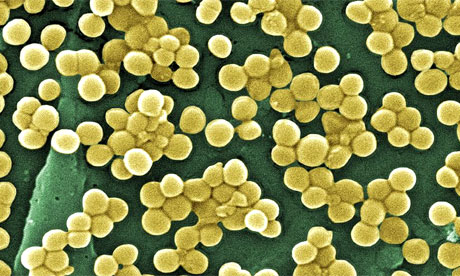Almost 1 in 5 women over the age of 44 suffer from what is known as Urgency Urinary Incontinence (UUI): experiencing a strong sensation of an urgent need to pee, followed by immediate leakage of a large volume of urine.
It can severely adversely affect someone’s life, contributing to anxiety, depression and social isolation.
In spite of its impact, the causes of the complaint are still relatively unknown. The condition is often attributed to abnormal signalling prompting the bladder muscles to contract involuntarily, but this seems to account for only about three fifths of cases. Scientists are searching for other possible causes of the condition. Some think that understanding the bacteria that live within us may hold the key.
The urinary tract has long been thought to be a sterile environment: a place where no bacteria can grow. A new study from Oregon Health and Science University that was published in Frontiers in Cellular and Infection Microbiology, suggests that this assumption might be far from the truth. Furthermore, their research suggests that the variety and type of bacteria that are present in the tract may have a role in general health and conditions like urgent urinary incontinence.
The main reason why the urinary tract has been assumed to be inhospitable for bacteria is that scientists have been unable to grow bacteria from urine samples in the laboratory and so believed that there was nothing living within those samples. However, the Oregon team has taken a different approach, looking for the tell-tale signs of bacterial DNA within urine.
Nearly every woman from whom they collected urine, regardless of whether or not she suffered from urinary incontinence, had a wide variety of bacteria present, though the women with UUI seemed to have fewer different types of bacteria. Rahel Nardos, one of the scientists behind the study, hopes that “the scientific community can learn to understand how these bacteria behave under normal and diseased conditions”.
In some cases, the bacteria present in the urine of women suffering from UUI are the same kinds that cause urinary tract infections. This suggests that a persistent low grade infection by bacteria that are not commonly detected by routine cultures could potentially be responsible for the irritative symptoms of UUI, at least for some individuals. Rahel hopes “that future work in this area of research will lead to more accurate diagnoses and better targets for treatments.”
Furthermore, it seems that the fewer different kinds of bacteria that are present in the urinary tract, the more severe are the symptoms experienced by the patient. Dr Lisa Karstens, one of the scientists in this project thinks that “much larger studies will need to be completed in order to understand the variability of these bacterial communities in healthy individuals and to determine if there are specific patterns that emerge from this variability that indicate normal and abnormal states.”
If our reporting has informed or inspired you, please consider making a donation. Every contribution, no matter the size, empowers us to continue delivering accurate, engaging, and trustworthy science and medical news. Independent journalism requires time, effort, and resources—your support ensures we can keep uncovering the stories that matter most to you.
Join us in making knowledge accessible and impactful. Thank you for standing with us!

